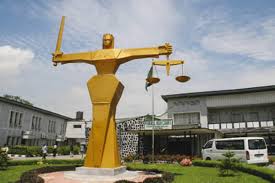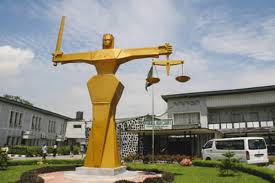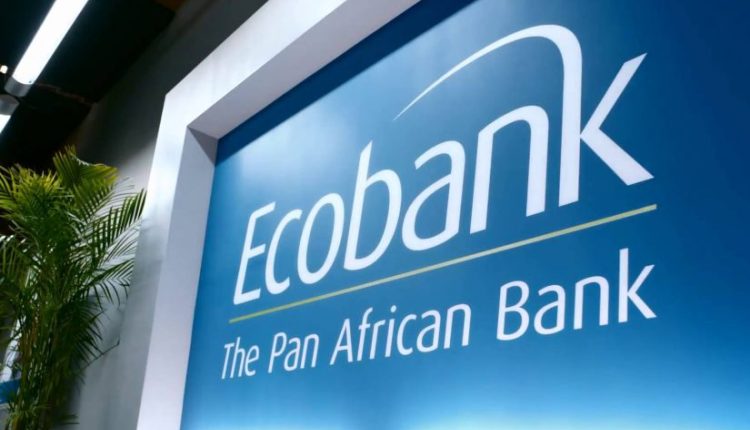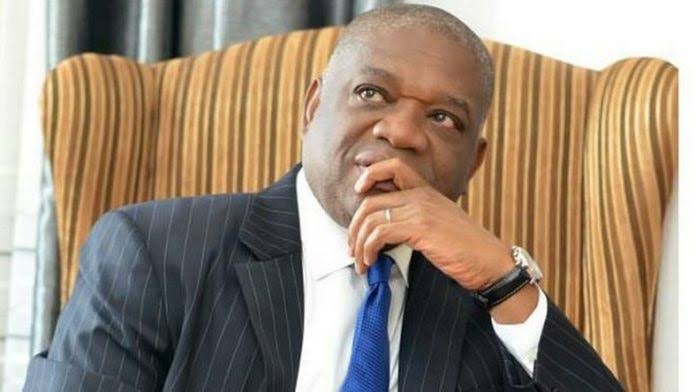News
Industrial Court orders NBET to pay former staff within 30 days or risk contempt of court

The Nigerian Bulk Electricity Trading Plc has once again been called upon to comply with the judgment of the National Industrial Court in Abuja, which ordered the immediate payment of the salaries, emoluments and accruable benefits of a whistleblower, Sambo Abdullahi, which has been withheld since December 2017.
Since the court gave the judgement, there have been several efforts by different organization and bodies to get justice for Sambo Abdullahi, Head internal Audit in NBET who is being punished for uncovering sundry acts of corruption in the organization.
AFRICMIL which has been in the forefront of the campaign for protection of whistleblowers, has in the last three years, joined the stream of groups that have called on the Managing Director of NBET, Dr Marilyn Amobi to show obedience to rule of law by complying to the judgment of the National Industrial Court in Abuja, which ordered the immediate payment of the salaries, emoluments and accruable benefits of a whistleblower, Sambo Abdullahi, which she has withheld since December 2017.
In a statement signed by its coordinator, Dr Chido Onumah, and made available to CAPITAL POST in Abuja, the organisation reminded the NBET boss that the 30-day window given by Justice Oyejoju Oyewumi of the National Industrial Court for her to comply with the judgment expired on April 10, 2020.
According to Onumah, “Dr Amobi should do the needful and not treat the judgment of a court of competent jurisdiction with contempt as she treated the directive of the former Minister of Power, Works and Housing, Babatunde Fashola, SAN.”
Onumah said at least on two separate occasions in 2018, Fashola had, following the report of a ministerial committee, which investigated the crisis in NBET, directed Dr Amobi to pay Abdullahi his salaries and allowances and treat him like other staff in NBET, but Dr Amobi defied the minister by flatly ignoring the directives.
The statement said Abdullahi had suffered enough having gone without salary for more than two years.
“Nobody, more so a whistleblower deserves this kind of treatment. It is important to point out that Abdullahi has since been vindicated by the ICPC, EFCC, BPE and the office of the Auditor General of the Federation, all of which indicted Dr Amobi.
Government, therefore, has a duty to protect the whistleblower and ensure that he does not continue to be victimized for doing what is right,” Onumah added.
Recall that Abdullahi went to court in December 2018 when all efforts to resolve the crisis by Fashola and the Office of the Secretary to the Government of the Federation proved abortive.
On March 11, 2020, Justice Oyewumi held that the stoppage of his salary, allowance, and other entitlements such as annual leave was wrong.
She ordered the payment of all salaries and allowances within 30 days, failure of which will attract 21 per cent annual interest.
Whistleblowers are the first line of defence against corruption, crime and cover-ups, according to a 2019 paper by the All–Party Parliamentary Group (APPG) on whistleblowing in the U.K.
For Sambo Abdullahi, head of internal audit at the Nigerian Bulk Electricity Trading (NBET) Plc, it has been one long tortuous journey. Over the past two years, he has been at the receiving end of the retaliation that whistleblowers around the world, including in Nigeria, face for shining the light on malfeasance around them: denial of wages, job losses, expensive court cases, abuse, psychological trauma, blacklisting across their sector, and sometimes death.
Abdullahi has been denied his salary and other allowances since December 2017, threatened, blacklisted, arrested and sued.
All of this for acting professionally and responding patriotically to the call of the Nigerian government asking citizens to join the fight against corruption by blowing the whistle on corrupt practices and other forms of wrongdoing in the country.
In two separate courts, in Ifo, Ogun State, and Okitipupa, Ondo State, where in a most brazen abuse of judicial process, Abdullahi was summoned to answer charges of defamation levelled against him by his boss, Dr. Marilyn Amobi, managing director of NBET, he easily walked through the doorway of victory. Both cases were struck out on account of Dr. Amobi’s lack of seriousness in prosecuting.
The crisis of corruption in NBET has been going on for almost three years and the government appears not to have any solution. The appointment of Dr. Amobi as the second substantive MD/CEO of NBET signified doom not only for Abdullahi as head of internal audit but also for the entire staff of the company. The MD withheld Abdullahi’s salary and other emoluments just because he exercised the right to decline participation in her fraudulent activities and rejected an unwarranted deployment to a new department unilaterally created by the MD to continue to perpetrate fraud.
Abdullahi, a Fellow of the Institute of Chartered Accountants of Nigeria (ICAN), graduated in Accounting from a reputable university and has over two decades of experience. He acquired experiences from both the private and public sectors before joining NBET. He was the pioneer head of Internal Audit of NBET in 2012; a position he held till 2016 when Dr. Amobi joined the company.
Within one month of Dr. Amobi’s assumption of office, Abdullahi discovered the illegal over-payment of N2 billion to two generating plants, Omotosho Power Plc and Olorunsogo Power Plc, both of which have no Gas Supply Agreement (GSA) and Gas Transportation Agreement (GTA), as required by industry agreement. The implication of this fraudulent transaction is that electricity consumers on a monthly basis pay N2 billion in excess of what they ought to have paid if this fraud were averted. It is on record that the very first month the fraud was detected, Dr. Amobi assumed the role of internal auditor by signing off the payment vouchers.
Her defence for this unlawful violation was that the mandatory GSA and GTA had been waived. The questions for her are: Who approved the waiver? Why was the waiver not extended to other thermal plants? And why did the waiver idea come only after the head of internal audit had uncovered the fraud?
On March 11, Abdullahi (the claimant) once again walked the path of victory with the court delivering judgement in his favour… The judge ordered the payment of Abdullahi’s salaries and other allowances, noting, “All sums awarded in the judgement is to be paid within 30days of the judgement, failure upon which it attracts 21% interest thereon per annum.”
While the issue of salary suspension remained unresolved in spite of interventions from the Ministry of Power, the Office of the Secretary to the Government of the Federation and the Office of the Vice President, among others, Abdullahi approached the National Industrial Court in December 2018, twelve months after the unlawful stoppage of his salaries, with Nigerian Bulk Electricity Trading Plc, Dr. Marilyn Amobi (MD/CEO), Hon. Minister of Power and the Ministry of Power as defendants.
On March 11, Abdullahi (the claimant) once again walked the path of victory with the court delivering judgement in his favour. According to Hon. Justice O. O. Oyewumi, the act of the suspension of the claimant’s salaries from December 2017 till date was wrongful; the denial of the claimant’s 2017 and 2018 leave was wrongful; the 1st and 2nd defendants, contrary to its terms and conditions of service, withheld the claimant’s salary and other emoluments wrongfully.
The judge ordered the payment of Abdullahi’s salaries and other allowances, noting, “All sums awarded in the judgement is to be paid within 30days of the judgement, failure upon which it attracts 21% interest thereon per annum.”













